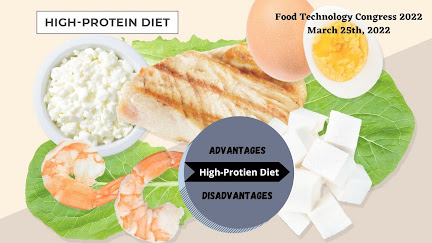What are the advantages and disadvantages of high protein diet?
A high-protein diet is one in which protein accounts for 20% or more of total daily calories. The majority of high-protein diets are high in saturated fat and severely limit carbohydrate intake. Lean beef, fowl or poultry, pig, salmon and tuna, eggs, and soy are examples of high-protein foods. High-protein diets have been criticised for perpetuating misconceptions about carbs, insulin resistance, and ketosis as a form of fad diet. Nutritionists have condemned the diet as harmful and imbalanced. The long-term effect of high-protein diets is neither consistent nor conclusive, according to a 2011 assessment. According to a 2014 assessment, high-protein diets derived from animal sources should be approached with caution. High-protein diets can raise blood ketones levels (ketosis), which can lead to high uric acid levels, which can cause gout and kidney stones. Protein poisoning is a type of metabolic disruption and death caused by a high protein intake (on the order of 200 g per day) combined with insufficient intake of other calorie sources (fat or carbohydrates). Consuming more than 285 g of protein per day (for an 80 kg person) may be dangerous even when additional calorie sources are used.
Advantages:
One of the most well-known macronutrients is protein. It's important for your body's overall health, growth, and repair, as well as recovery. While there are worries about the dangers of eating too much protein, high protein diets provide a number of compelling advantages.
- High protein diets support muscle gain and repair
- High protein diets may help improve your mood
- High protein diets stabilise your blood sugar levels
- High protein diets can promote fat loss
- Protein keeps your bones strong
- High protein diets may promote heart health
Disadvantages:
Foods like red meat and full-fat dairy products, which are found in some high-protein diets, may raise your risk of heart disease. Because your body may have problems discarding all of the waste products of protein metabolism, a high-protein diet may decrease renal function in those with kidney disease.
- Weight gain
- Bad breath
- Constipation
- Diarrhea
- Dehydration
- Kidney damage
- Increased cancer risk
- Heart disease




Comments
Post a Comment